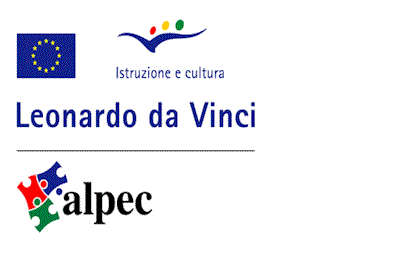
| * THE GOALS OF THE PROJECT |
| * THE PHASES OF THE PROJECT |
European educational programmes (Leonardo, Socrates) set up networks of educational institutions from different European countries with the aim of carrying out joint projects involving teachers and other educational and administrative staff working in various sectors. Likewise, institutions in charge of initial training are increasingly involved in organizing exchange projects with similar institutions from other countries and training courses in educational, professional and business contexts. Both the transnational projects developed within these UE programmes and the exchange and training activities involve moments when representatives of partner countries must negotiate and plan projects.If such activities are to have the necessary impact on the educational policies of the institutions involved, the decision-making and operative phases of the project clearly cannot be delegated to language teachers alone; teachers of other subjects, school heads, administrative staff and those in charge of developing cooperation and transnational mobility projects in the area of vocational training must also take an active part. For them to do this, however, they need an adequate level of communicative language competence and cultural competence in at least one European language besides their own, but past experience has indicated that this is often lacking. The present project therefore aims at developing specific language and culture courses for these target learners.
In order to achieve this, the first step must be to identify very precisely, using the most recent audit tools, the communicative language needs emerging from transnational co-operation contexts. On the basis of this preliminary needs analysis, specific courses will be designed to teach the languages and cultures of the three partner countries. These courses, which will be based on the Common European Framework of Reference for Languages of the Council of Europe, will be be made up of five flexible modules dealing with:
- identity and interpersonal relations;
- identity and professional relations;
- argumentation and negotiation in transnational project planning;
- use of transnational materials, documents and resources and technological tools;
- methodological guidelines for adapting the teaching/learning materials to different professional contexts.
The first four modules will contain sequences of structured language activities while the fifth module will contain a series of methodological suggestions on how to supplement or adapt some of the units to specific professional contexts.The modules will be created through an interactive and coordinated approach by the institutions of the three partner countries (It, Fr, UK) which have been selected for their experience and competence in the production of language teaching materials.
In particular the Lend Association, which has long organised groups of language teachers throughout Italy, will ensure, through its website and quarterly journal, constant information on the state of the project and its results, including the dissemination and validation of the materials being produced.
In the first phase the language needs analysis will be carried out in selected schools of the three partner countries (It, Fr, UK) according to the modalities agreed upon. Results will be then compared and formalised so as to form a common basis for the next phase, in which each partner will develop a share of the teaching modules and materials, to be tested and validated in the participating schools. The teaching materials will be produced in paper and multimedia formats.Through the production of the materials, the project's aims include:
- as regards the professional development of the target learners, fostering in-service training centred on local needs and resources, and the development of self-learning processes and skills;
- as regards the educational quality of the institutions concerned, promoting the development of an international relations policy consistent with the school autonomy and the specific needs of each context.